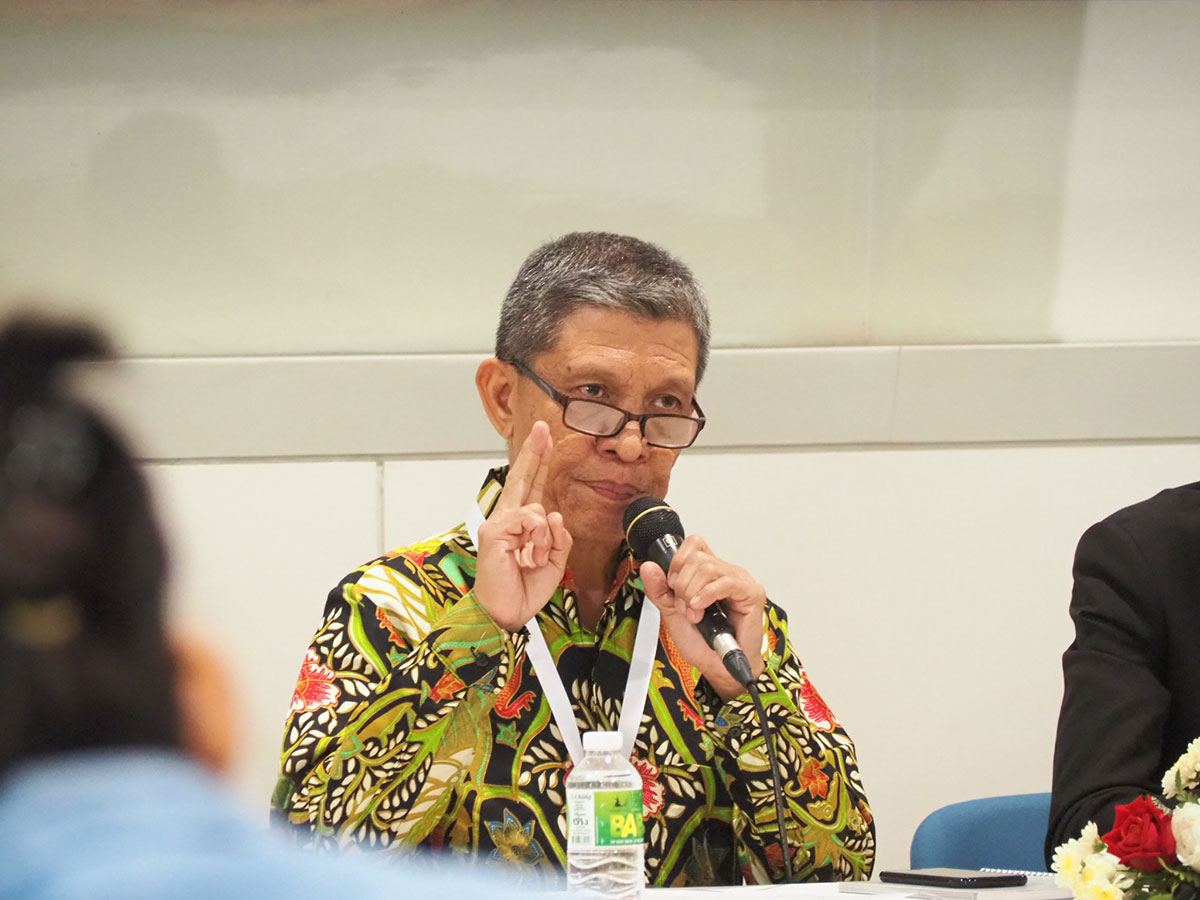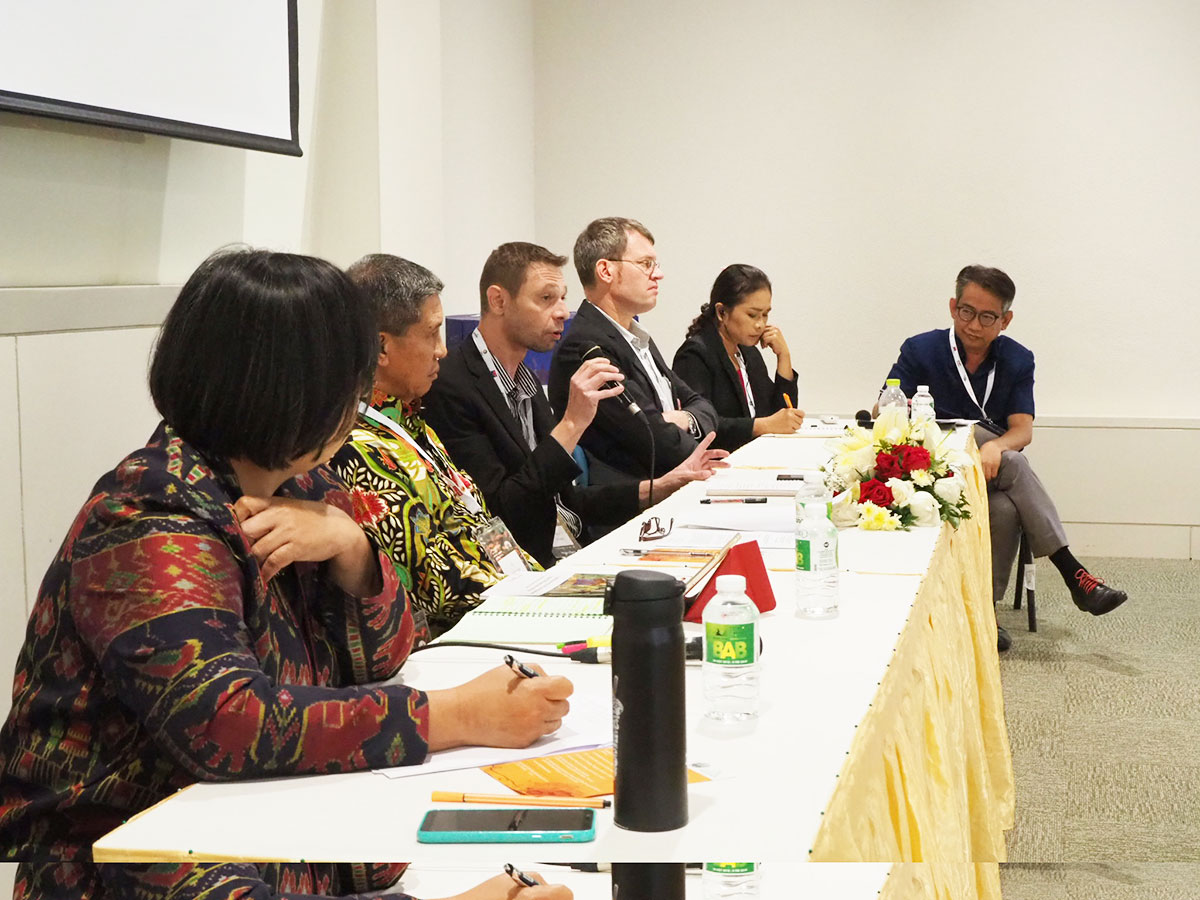CHIANG MAI, Thailand – In pushing Thailand to become one of Southeast Asia’s major exporters of Robusta coffee, involved stakeholders in the industry have called for stronger collaboration among public and private sectors.
At a multi-stakeholder dialogue in Chiang Mai on Thursday, Mr. Woulter de Smet, Green Coffee Farmer Connect Manager Zone AOA at Nestle insisted that public and private policies should ideally go hand-in-hand to usher stronger Robusta coffee industry of the country.
“What is missing for me is that different stakeholders are working together and outlining what the strategy will forward. If you all work more closely and go in the same direction, achieving the goals of the Coffee Strategic Plan of Thailand will be easier,” he said.
The Coffee Strategic Plan of Thailand (2017 – 2021), backed by the Ministry of Agriculture and Cooperatives, aims to boost the Thai coffee industry’s total output, improve the coffee’s quality and reduce investment cost.
 While Mr. Dave A. D’Haeze, regional manager at Hanns R. Neumann Stiftung Asia Pacific, Vietnam and Mr. A. Syafruddin from Specialty Coffee Association of Indonesia considered national policy with a strong focus on Robusta coffee plantations and livelihoods of smallholder farmers as a key action needed to develop the entire coffee manufacturing process and strengthen effectiveness of the coffee strategy.
While Mr. Dave A. D’Haeze, regional manager at Hanns R. Neumann Stiftung Asia Pacific, Vietnam and Mr. A. Syafruddin from Specialty Coffee Association of Indonesia considered national policy with a strong focus on Robusta coffee plantations and livelihoods of smallholder farmers as a key action needed to develop the entire coffee manufacturing process and strengthen effectiveness of the coffee strategy.
Despite a slump in global coffee prices, Supattra Lertwatanakiat, acting senior expert on fruit crop at Department of Agriculture’s Horticultural Research Institute has reassured that the lowest price for Rubusta beans is guaranteed at 60 baht per kilogramme.coffee strategy.
Last year, Thailand could produce only 13,000 tonnes of Robusta coffee. About 19,0000 tonnes were predicted at the end of this year, far lower than the strategy’s target production of 30,000 tonnes.
An excess domestic demand causes Thailand to import a considerable amount of coffee from other countries, primarily Vietnam and Indonesia.
Department of Agriculture and Horticultural Science Society of Thailand in collaboration with Deutsche Gesellschaft fur Internationale Zusammenarbeit (GIZ) through the Coffee+ project organized a multi-stakeholder dialogue: Improving Robusta Coffee Productivity in Thailand at the first ASEAN Coffee Industry Development (ACID) Conference on 14 February 2019 at Chiang Mai International Exhibition and Convention Centre, Thailand.
To make the Coffee Strategic Plan a success, Pouchamarn Wongsanga, director of the Improving Smallholder Coffee Farming Systems in Southeast Asia (Coffee+) project put great emphasis on an awareness about the plan among farmers.
“First of all, coffee farmers need to be aware of the strategy’s importance and how it can help improve their products and livelihoods,” she said.
The project’s ongoing activities such as the learning-by-doing Farmer Business School (FBS) and intercropping system where multiple crops are planted with coffee trees could serve as demonstration cases to contribute to the goals set by the national strategy for Robusta coffee – meeting the strategy’s target of 30,000 tonnes by 2021, investment cost decreased by 10% and coffee sales boosted by 10%.





